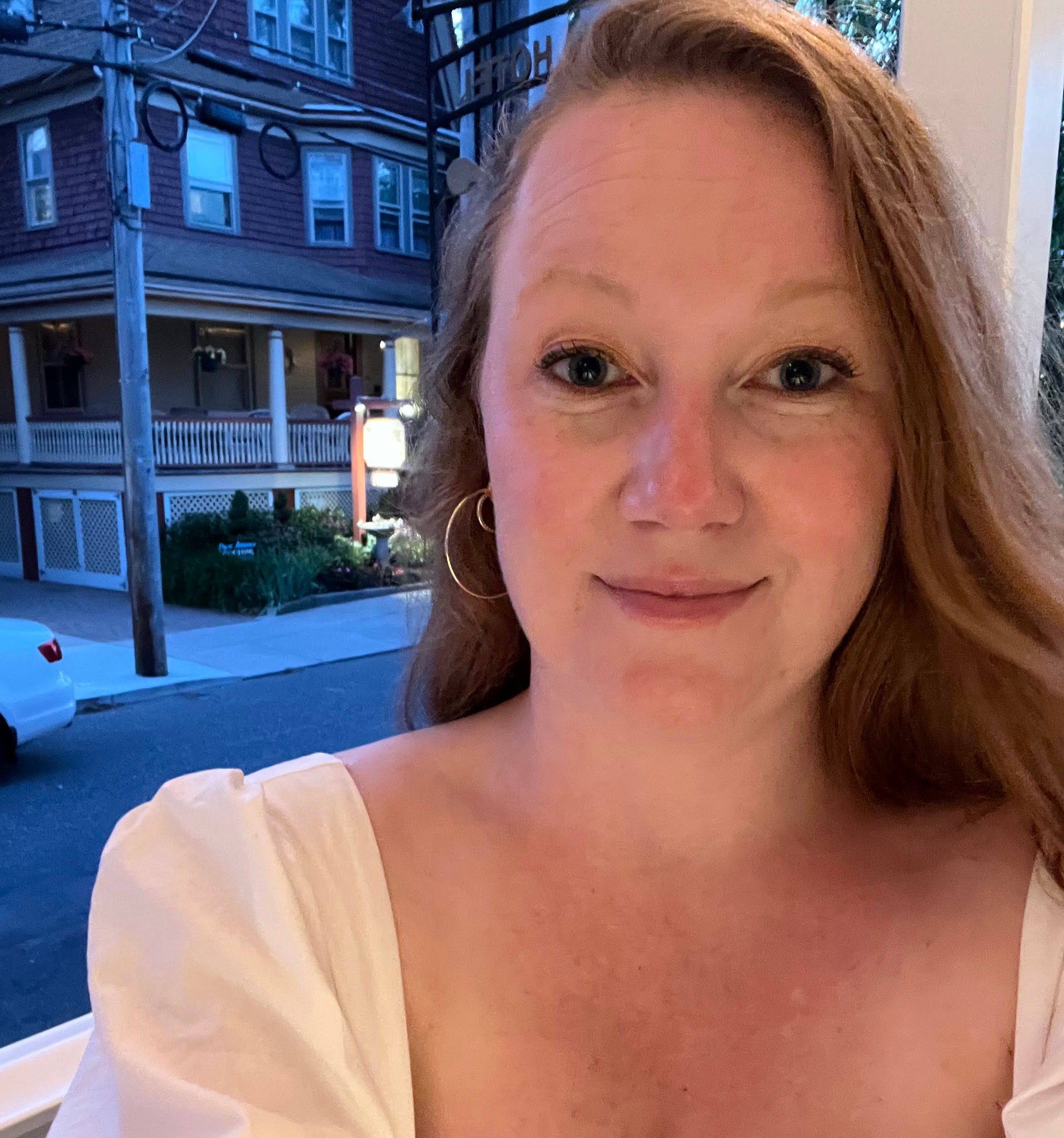
Smartphones are bad. In this guide, we’ll learn how to reduce screen time and why we should reduce screen time.
Intro
Okay, smartphones are ruining your mind and society. They make you feel depressed, isolated, stressed, anxious, tribalistic, etc. No matter what story you tell yourself about why your phone actually brings you joy or whatever, you’re wrong! Phones are evil and bad for you!
Why?
Basically, smartphone and smartphone app companies are incentivized to make their products maximize one thing: screen time.
What is screen time?
Screen time is the amount of time an app is open and the screen is “on” on your phone.
How do smartphones maximize screen time?
They turn people into compulsive users, of course!
Tech companies maximize screen time by training users to compulsively use and stay on devices.
What is compulsive use?
Easy! Compulsive use is repeatedly and compulsively doing something to feel good in the short term that in the long term hurts you and your relationships. It’s like how people compulsively use alcohol or drugs! The phones get you high while you use them. Then you crave using them
Phones aren’t so bad. They aren’t as bad as alcohol or drugs!
No, your phone doesn’t get you high like potent chemicals. But apps like Instagram can get you high like gossipping or biting your nails. It gives people a sense of comfort.
How
Basically, tech companies use the same techniques that casinos use to make people compulsive gamblers. Smartphone companies use these techniques to make people compulsive app users. But instead of winning or losing money, people are winning or losing social status and connection.
Explain it to me like I’m a kid.
Basically, casinos attempt to make people into compulsive gamblers. They attempt to maximize “playtime” by offering quick wins at the expense of long-term net financial losses. Casinos use strategies such as purposefully obscuring how much time has elapsed, using bright lights and flashing colors to excite the nervous system, eliminating choice points in their games, etc.
However, the essential mechanism casinos use to increase playtime is this: offering players quick wins at pseudorandom intervals to keep them feeling high on gambling.
Offering players quick wins at p-seudo-whatsitnows?
Offering players quick wins at pseudorandom intervals. What that means is the casino will let you win with some relatively stable frequency (let’s say they let you win approximately one play out of every ten plays). When they let you win that one time, you will win $8. However, you lose $1 the other nine times you play. On that $8 win, your dopamine levels in your brain spike (hooray! I won $8!). Then your dopamine levels fall the other nine times a little bit (Ah, I lost… nut only $1!). Then, over time, the brain learns to associate spikes in dopamine levels with playing the game. So, THEN your brain begins to keep your dopamine levels high EVERY time you play anticipating that you will win big at some point! But in the long run, players always lose more than they win.
So! Your smartphone does the same thing. Each app attempts to give you pseudorandom big dopamine spikes (like with gossip-py clapbacks on X or row clears on Tetris). Then, your brain learns to raise dopamine levels when using these apps all the time (anticipating spikes) and so people learn to compulsively use the apps despite the fact they drain our energy and attention and make us worse human beings and a worse society.
But… why do they do this horrible thing?
Once you’re a compulsive user of their services, they can sell you extra premium services or sell advertisers space on their app. The last thing they want is for you to reduce screen time.
Not me though. There’s no way I compulsively use my phone and it’s bad for me.
Yes you are. Try to be without your phone for 5 hours one day. Let me know how that goes.
Onward!
So, we’re all agreed. Phones are evil. There are no counterpoints. Onto the guide!
Here’s a guide on how to reduce screen time.
- Make your phone boring – The modern smartphone is set up to be habit-forming. It’s set up to allow frictionless movement between dopamine-spiking tasks. Endless scrolling on social media apps, red badge notifications, rings, buzzes, they are ways to queue you and reward and pattern reinforce you into using the phone too much. The key to not phoning is to reverse these processes. Add friction.
Dis-organize your apps – A lot of people have very organized smartphone home screens that have each app neatly placed in a submenu that is labeled with the general function of that group of apps.
- Turn off colors – Our phones are pretty because of the pretty colors. Turn them off and now they aren’t as pretty. Here’s how to do it in iPhone. For other systems, just ask chatGPT or google how to do it.
Open the Settings app
Select General
Select Accessibility
Select Display Accommodations
Select Color Filters
Turn off all filters by using the kill switch
Move high traffic apps far away from each other – I keep my messages app 8 menu swipes away from my app for music so it takes longer to get between them and results in me using them less.
- Turn off your phone at night
- The best strategy for using your phone less is to turn it off at a certain time each night and see how long into the day you can wait to turn it back on again. While “Do Not Disturb” mode and “Night” or “Sleep” modes on modern phone operating systems can be somewhat useful, they’re like putting a band-aid on a gushing head wound– kid tested, NOT mother approved. So, you ask, “Then what, infallible master, is effective? What shall we do in this war against the ghost of Steve Jobs.” Well, I’m glad you asked. About an hour or two before bed, turn your phone completely off (not on airplane mode, not on Do Not Disturb, off!...off! off! off!). Then, hide it in a drawer in a room other than your bedroom. Then, leave it off for the whole night. THEN, see how long you can leave it off into the next day. 10AM? Noon? Maybe you can leave it off until 5PM! Go, you! This will allow you to have a clearer night’s sleep and a clearer morning and possibly a clearer day. Imagine what you could do with your day if you didn’t start it off with a wash of all the day’s news, culture wars, texts storms, youtube fitness bros, tik tok psychologists, instagram models who are a little too obsessed with their own butts, an email your dad sent you about the country’s failing infrastructure, etc.
- But, PHIL, how will I wake up in the morning without my phone’s alarm? There’s no solution out there!
- Buy an alarm clock
An alarm clock is a device our paleolithic ancestors once used to wake themselves up to start their days.
I’ve heard tell of these “alarm clocks.” I think I learned about them in a documentary I watched. But they must cost thousands of dollars, right?
While alarm clocks may SOUND expensive, they are surprisingly cheap, usually under $10 on Amazon.
- Buy an alarm clock
- But, PHIL, how will I wake up in the morning without my phone’s alarm? There’s no solution out there!
- The best strategy for using your phone less is to turn it off at a certain time each night and see how long into the day you can wait to turn it back on again. While “Do Not Disturb” mode and “Night” or “Sleep” modes on modern phone operating systems can be somewhat useful, they’re like putting a band-aid on a gushing head wound– kid tested, NOT mother approved. So, you ask, “Then what, infallible master, is effective? What shall we do in this war against the ghost of Steve Jobs.” Well, I’m glad you asked. About an hour or two before bed, turn your phone completely off (not on airplane mode, not on Do Not Disturb, off!...off! off! off!). Then, hide it in a drawer in a room other than your bedroom. Then, leave it off for the whole night. THEN, see how long you can leave it off into the next day. 10AM? Noon? Maybe you can leave it off until 5PM! Go, you! This will allow you to have a clearer night’s sleep and a clearer morning and possibly a clearer day. Imagine what you could do with your day if you didn’t start it off with a wash of all the day’s news, culture wars, texts storms, youtube fitness bros, tik tok psychologists, instagram models who are a little too obsessed with their own butts, an email your dad sent you about the country’s failing infrastructure, etc.
- Turn off all notifications except for calls – Modern smartphones allow you to change the notification settings for your overall operating system and for each individual app. Turn them all off.
Go to the settings in your phone and search for Notifications. Then go app by app and turn off notifications on all apps except the phone app (so people can call you in case of emergency).
- But I like knowing when my friends text me!
We’re social creatures, you’ll check frequently enough on your own without the help of red numbers.
Hide your phone – whenever possible, put your phone somewhere you can’t see it and as far away from you as possible. Put it in a drawer downstairs while you work. Hide it in the bedroom when you and your lover watch Below Deck in the living room. Make it inaccessible!
Turn your phone off during the work day – See above. Hide it too.
Delete all games off your phone
- Delete all social media apps off your phone
- But won’t I miss them? Don’t they bring me joy and keep me connected with my friends?
No
Social media algorithms are an values neutral technology addicting people into wasting their lives ineffectually attending to and ruminating on negativities in the guise of social connectedness.
You’ll actually make stronger social connections once you DON’T have your brain blasted with useless information about people with whom you no longer associate. You’ll invest more in the people that are actually close to you.
- But won’t I miss them? Don’t they bring me joy and keep me connected with my friends?
- Log out of all social media sites on your browser
- But won’t I miss social media? Social media keeps me connected to the tragedies of this world so I know what to be angry about.
No. Social media algorithms and user interfaces cause people to fall into tribal battles basically using up all potential energy as friction and not actually helping anyone.
If you want to help the world, pick a few key causes and lend consistent support to them over time through direct work or financial donations.
- But won’t I miss social media? Social media keeps me connected to the tragedies of this world so I know what to be angry about.
- Delete all news apps off your phone
If you want to read the news, buy a Kindle and subscribe there.
- Log out of all news apps on your browser.
Kindle.
So, there you have it. Now you know how phones make you into a compulsive user and ruin your life and our society. And you know how to reduce screen time.
If you are looking for more reasons to reduce screen time and how to cope with a screen addiction, You can self schedule an in-person or virtual therapy session at the Center for Growth by calling (215) 922- LOVE (5683) x 100.
Our Guarantee: If after your first session you are not sold that you are working with the right therapist, do not hesitate to call our intake line at 215 922 5683 x 100 or Alex at (267) 324-9564 and ask to be rescheduled with another therapist. The choice of how you want to proceed is yours. Our only goal is to support you in becoming the best you possible.
For your convenience, we have brick and mortar offices and work with clients virtually in Connecticut, Delaware, Florida, New Jersey, New Mexico, Pennsylvania, and Virginia.
Physical Therapy Office Locations:
Ocean City Therapy Office 360 West Ave, Floor 1, Ocean City, NJ 08226
Mechanicsville Therapy Office 9044 Mann Drive, Mechanicsville Virginia, 23116
Society Hill Therapy Office 233 S. 6th Street, C-33, Philadelphia PA 19106
Art Museum / Fairmount Therapy Office 2401 Pennsylvania Ave, Suite 1a2, Philadelphia PA 19130
Providence Therapy Office 173 Waterman St. Providence, RI 02906
Fayetteville Therapy Office 101 Devant Street #606, Fayetteville GA 30214
Santa Fe Therapy Office, 2204 B Brothers Road, Santa Fe, New Mexico, 87505
Telemedicine Therapy Locations: We have therapists who are licensed to work in Connecticut, Delaware, Florida, Georgia, New Jersey, New Mexico, Pennsylvania and Virginia and Pennsylvania
Therapy Services Offered in Fayetteville, Ocean City, Mechanicsville, Philadelphia, Providence, Santa Fe:
Individual Counseling and therapy
Couples Counseling and marriage counseling
Teen Therapy and Adolescent Therapy and tweens and child counseling
Family Therapy and multi-generational counseling
Art Therapy and Counseling no art skills needed
ADHD Therapy and ADD, Dyslexia, Autism, Tourettes counseling
Anxiety, Panic, OCD Therapy and worry and fear support
Breaking the cycle of Codependency and being your own person
Overcoming Chronic Illness and Chronic Pain .
Depression Therapy and sadness, gloom, and upset support
Functional Neurological Disorder (FND) Therapy is a particular style of therapy designed for people with problems affecting their nervous system, how the brain and body send and receive signals.
Grief Therapy and loss, End of A Relationship, rejections, pregnancy and loss and therapy
Mindfulness Based Therapy and spirituality based therapy
Narcissistic Abuse Recovery child of, parent of, spouse of, sibling of a narcissist.
Sex Therapy and sexual function & dysfunction, sex addiction, sexual orientation and gender identity support
Trauma Therapy both emotional and sexual abuse, complex trauma, PTSD counseling
Divorce support
Affairs, Infidelity, Unfaithful, Cheating counseling
Parenting therapy
Personality disorder treatments Narcissist, Borderline, Histrionic
Setting Boundaries and identifying ones own Core Beliefs
Just name some of the Mental Health issues that we work with. Our goal is to help you Change and Achieve Your Dreams

































